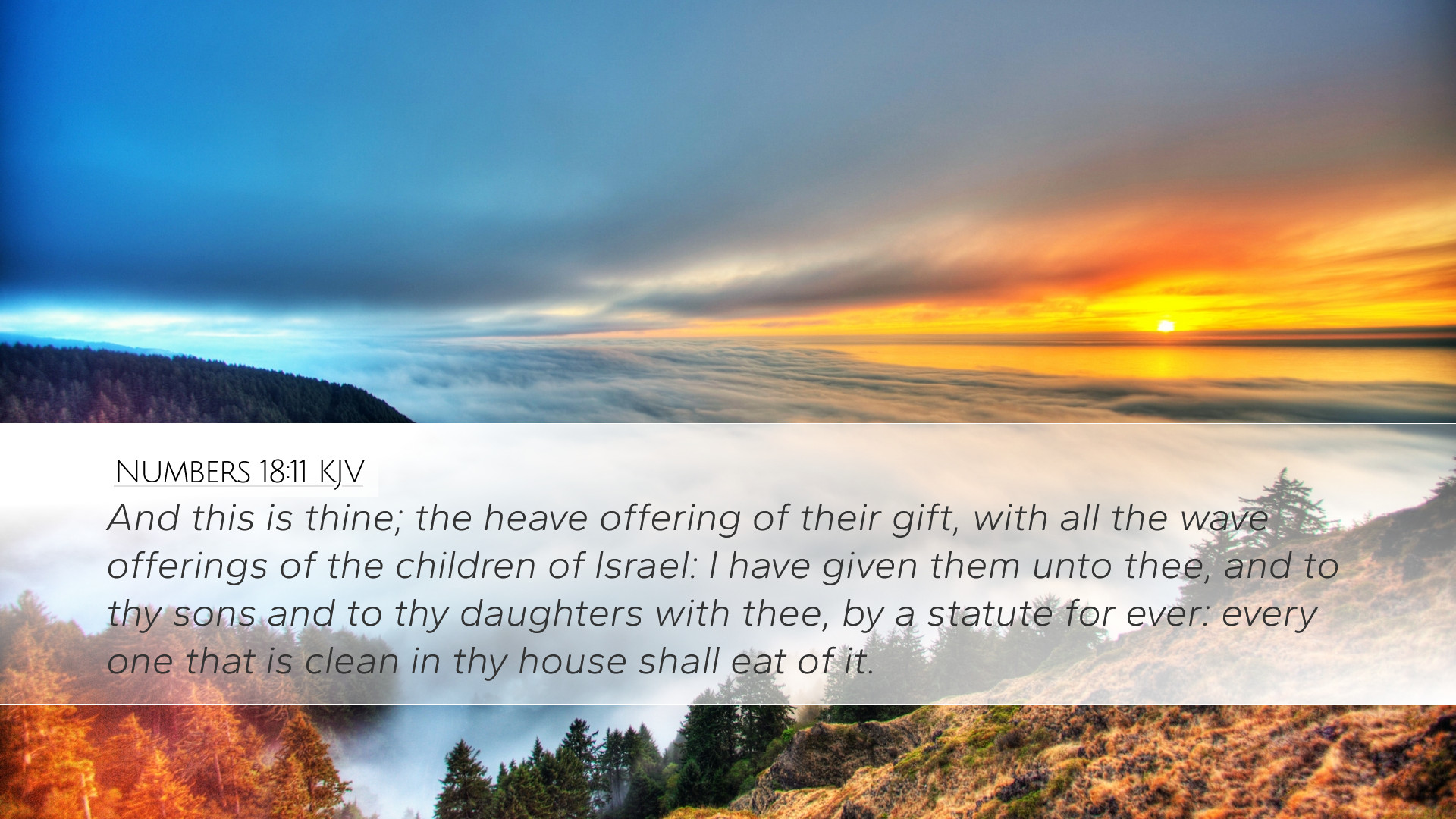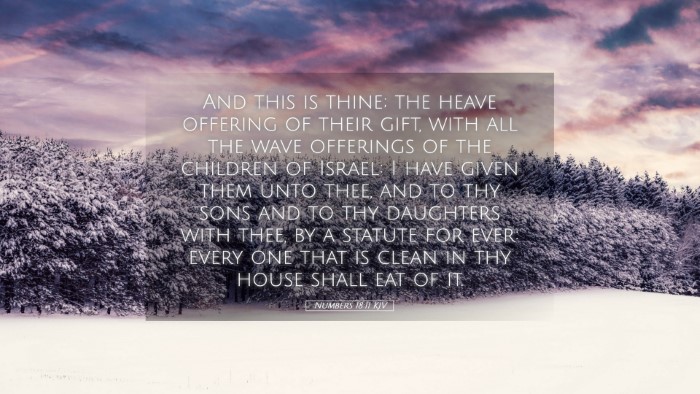Commentary on Numbers 18:11
Introduction
Numbers 18:11 states, "And this is yours, the heave offering of their gift, with all the wave offerings of the children of Israel: I have given them unto you, and to your sons and to your daughters with you, by a statute forever: everyone that is clean in your house shall eat of it." This verse is situated within the context of the Levitical priesthood and outlines the privileges and responsibilities assigned to the priests, including the provisions made for their sustenance through the offerings brought by the people.
Exegesis of the Text
1. Divine Provision for the Priesthood
This portion of scripture highlights God's provision for His servants. The heave and wave offerings symbolize the people's acknowledgment of God's sovereignty and their desire to support the spiritual leaders. Matthew Henry remarks on the significance of the heave offerings, emphasizing that they are not merely gifts but are viewed as a representation of the people's gratitude and devotion to God.
2. The Statute of Everlasting Significance
God’s decree that these gifts are to be shared with the priests' families indicates the importance of maintaining a priestly lineage within the community. Albert Barnes provides insights into the socio-religious implications, noting that by stipulating these offerings as a 'statute forever', there is a clear intention for the perpetuity of the Levitical priesthood and its role in the life of Israel.
3. Inclusivity of the Offerings
Adam Clarke highlights the clause "everyone that is clean in your house shall eat of it," suggesting a communal aspect. The holiness of the food is considered, and thus only those who are deemed clean may partake. This inclusivity speaks to the relational dynamics within the priestly households and their relationships with other Israelites, illustrating a model of shared spiritual sustenance.
Theological Reflection
1. Christ as the Fulfillment of the Priesthood
This passage can be viewed through the lens of New Testament theology that sees Christ as the ultimate high priest. The heave offerings serve as a foreshadowing of Christ's sacrifice, where He becomes the offering that fulfills all offerings. This highlights the transition from the Old Covenant rituals to the New Covenant reality.
2. Ministry and Provision
From this scripture, we glean the importance of supporting ministry. Just as the priests relied on the faithfulness of the Israelites, modern pastors and spiritual leaders often depend on the generosity and commitment of their congregations. This reiterates the biblical principle of stewardship and communal responsibility in sustaining the work of the ministry.
Practical Applications
- Resource Allocation: Church leaders should ensure that their congregations are educated on the importance of supporting the ministry through financial contributions and service.
- Holiness and Inclusiveness: The criteria for partaking of the offerings remind us of the call to holiness within the community of faith. Leaders must foster an environment where all are encouraged to live righteously.
- Celebration of Generosity: Teaching the value of generosity as a form of worship can help to cultivate a culture of giving, reflecting the heart of Numbers 18:11.
- Legacy of Faith: Just as the priests were to pass down their role and provisions, modern leaders should consider how they mentor the next generation of leaders in faith.
Conclusion
The verse Numbers 18:11 encapsulates rich theological truths and practical applications that extend beyond its immediate context. It invites reflection on God's provision, the nature of sacred offerings, and the relationships within the community of faith. As we engage with Scripture, may we seek to embody the principles contained within these teachings, ultimately drawing closer to the heart of God as we fulfill our roles within the Body of Christ.


